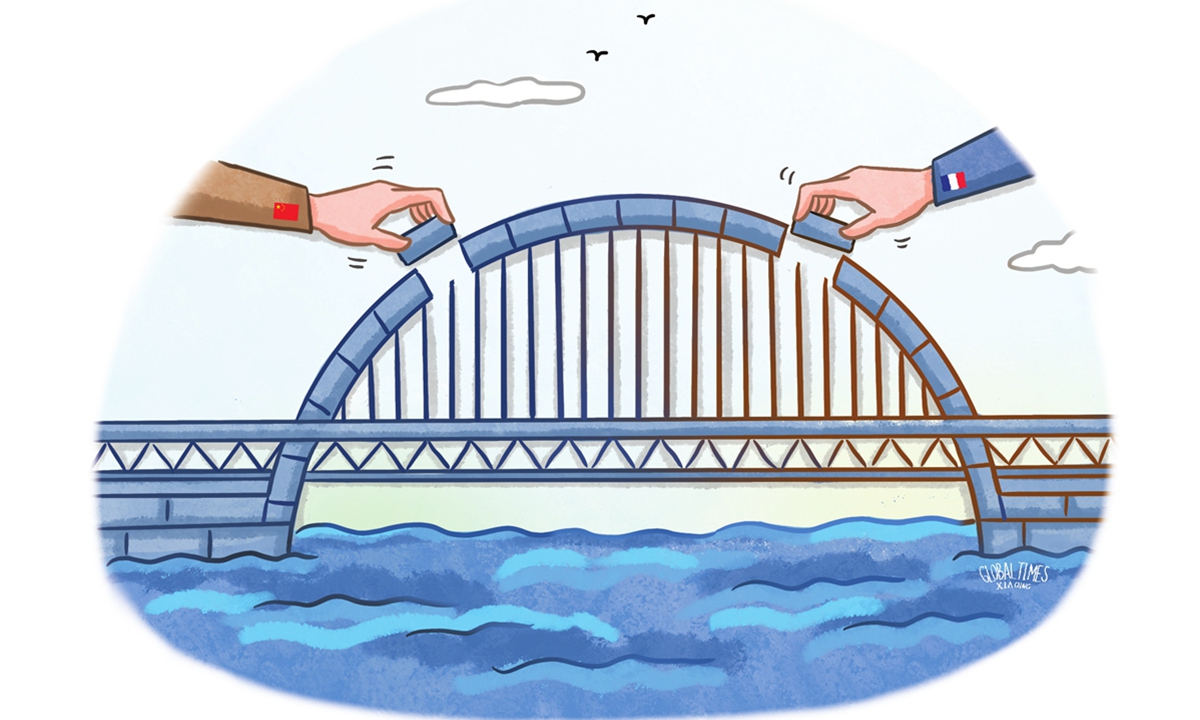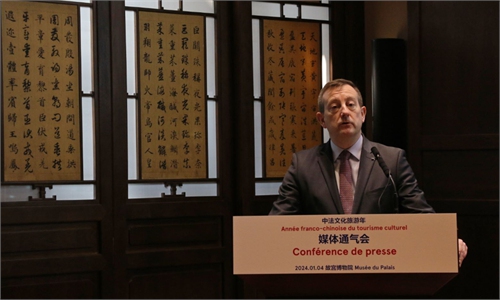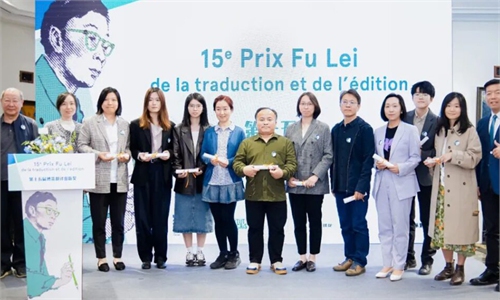Rise of China is the most apparent manifestation of globalization: French scholar

Illustration: Xia Qing/GT
Editor's Note:
Saturday marks the 60th anniversary of the establishment of diplomatic relations between China and France. During the past six decades, China and France have witnessed tremendous development in bilateral ties. As the first major Western country to recognize China, France is an important country that helped China to rejoin the international system. Pascal Lamy (Lamy), the vice chair of the Paris Peace Forum, shared his insights on the development of China-France relationship with Global Times (GT) reporter Su Yaxuan.
GT: This year marks the 60th anniversary of the establishment of diplomatic relations between China and France, as well as the China-France Year of Culture and Tourism. France will be a guest of honor at the 2024 China International Fair for Trade in Services and the seventh China International Import Expo. How do you evaluate the development and exchanges between China and France over the past 60 years?
Lamy: France was the first major Western country to recognize China in 1964, an important diplomatic initiative that helped China to rejoin the international system. In retrospect, it was a bold but wise decision, as China is now one of the major world powers. During these 60 years, China has become bigger and stronger, and France has been an engine of a successful European integration process, one of the purposes of which is to create a new, prominent actor in order to enhance and stabilize a peaceful rules-based multilateral system in a multipolar world.
GT: You once said, "The major transformation of this world is globalization. And the major transformation in globalization has been China." Do you still hold this view? What do you think China and France can do together in the future to promote global development?
Lamy: Yes, the rise of China is the most apparent manifestation of globalization. The world opened to China, and China opened to the world. European integration followed the same path. But today, globalization is threatened as rivalries, tensions, and conflicts are menacing world peace.
I believe that fostering international cooperation remains a must to address our common global challenges. At the Paris Peace Forum, we are working to engage new actors in global problem-solving, such as multinational companies, think tanks, civil society organizations, and major academic organizations, including a number of Chinese participants. I would be happy to involve more of them.
GT: The Paris Peace Forum aims to promote multilateral cooperation and address global challenges. In an extremely turbulent 2023, what can China and France do for the world crisis in 2024?
Lamy: France, the EU, and China share a common vision: a multipolar world where major powers cooperate with common rules to regulate competition, limit rivalries, and promote partnerships. Areas like combating climate change, promoting fair digitalization, and supporting economic and social development in poorer countries are obvious areas for more cooperation.
GT: How do you view Europe's role in the tense situation between China and the US?
Lamy: Europe's growth as a major world actor should help to reduce US-China tensions. It depends first and foremost on the will of Europeans to keep uniting further.
GT: France emphasizes the importance of Europe's independence and advocates for European strategic autonomy. How do you judge the prospects of European strategic autonomy?
Lamy: The EU still largely depends on the US for its security and China for its economic prosperity. At a time when security threats are growing, Europe needs to be more autonomous and "de-risk" on both sides. This is also the strategy followed by both the US and China. Both should understand and accept this new reality.



